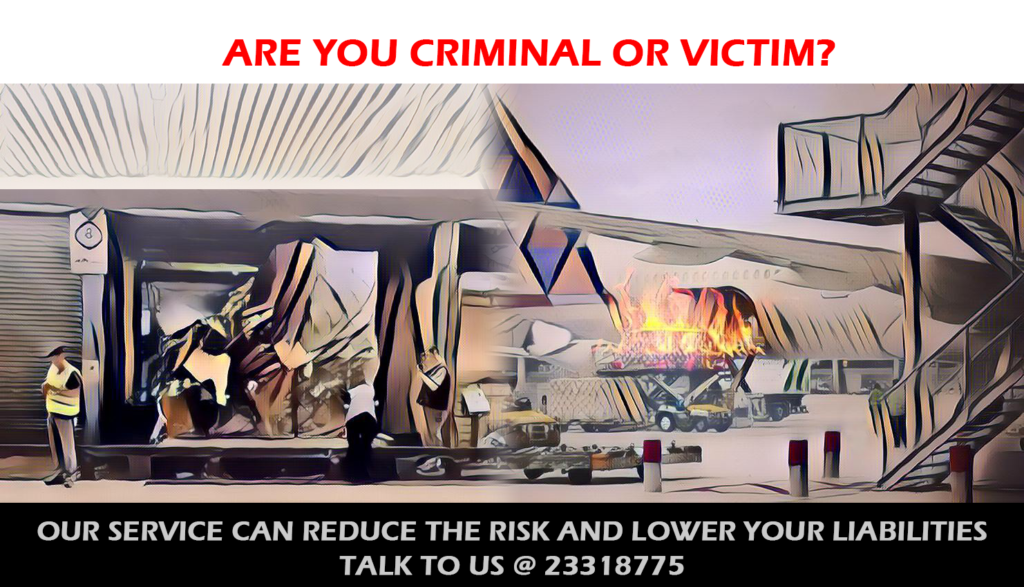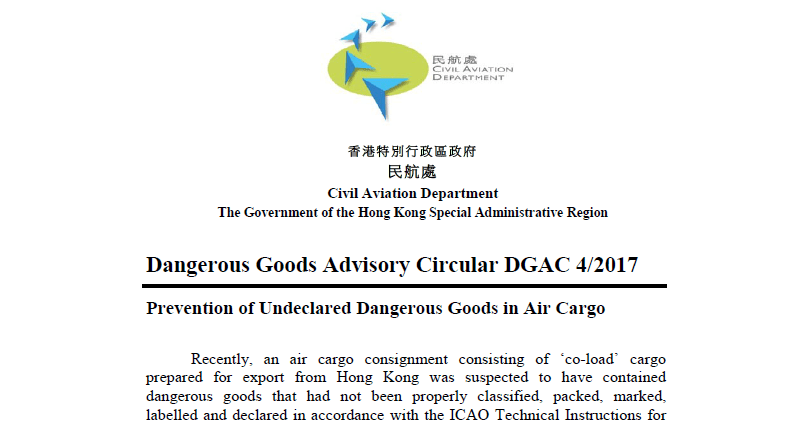CAD DG circular and 2021 ICAO New Air Cargo Security Policy directional change
Was “Chemical Substances” the culprit, or the “Electronic Products”?
On November 4 2017, a fire broke out from an air cargo pallet at SuperTerminal 1. The pallet was a co-loading shipment containing both electronic products and chemical substance classified as Non Dangerous Good by the Shipper. This incident prompted CAD to issue DGAC 3/2017 circular to remind Air Cargo personnel to exercise extra vigilant when handling chemical substances by verifying the guarantee letter, the MSDS, and the content prior acceptance.
CAD later issued DGAC 4/2017 cirular, stating the incident was caused by dangerous goods that had not been properly classified, packed, marked, labelled and declared in accordance with the ICAO Technical Instructions for the Safe Transport of Dangerous Goods by Air.
To prevent incidents such as above which would have severely affect daily operations, business relationships, and reputation, please ensure that you conduct shipper screening as well as consignment screening. Please also ensure that every staff who processes air freights documents or the physical consignment (that includes, customer service, operations, sales) to attend all required trainings (DGA training for all staff processing air freights and DGR for staff who handles dangerous goods and signs off the Shipper’s Declaration for Dangerous Goods) and renew before expiry, to ensure full compliance and mitigate the chance of incident occurrence.
The full circulars can be found below.
Phasing out of known consignors by 30 June 2021 by ICAO, and as early as 2018 by Hong Kong CAD
Incident and accident cases such as above has a trending occurrence. In response to this trend, a new ICAO (International Civil Aviation Organization) policy direction required phasing-out consignors not approved by the appropriate authority for aviation security by 30 June 2021 the latest. Under the new policy direction, consignors will either have to be approved by an appropriate authority, or have their air cargoes subject to 100% security screening. However, at present, a consignor recognised by its partnering Regulated Agents (RA) or aircraft operator may still have its consignments treated as known cargoes. Thus, it will necessitate big adjustments to the existing RAR in Hong Kong.





You must be logged in to post a comment.